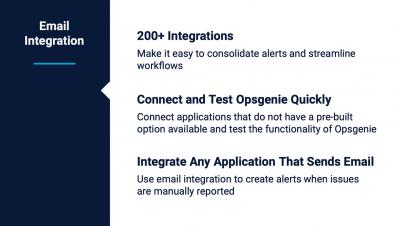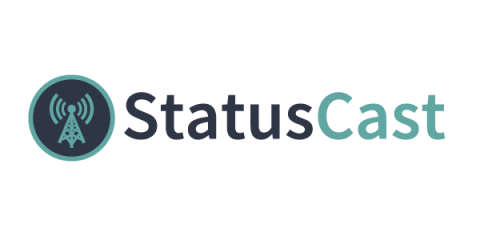Operations | Monitoring | ITSM | DevOps | Cloud
Alerting
6 Best Practices For Outstanding Critical Incident Management
"Businesses need to face the inevitability of being hacked at some point. It's not a question of if, but when — and that's why being proactive to minimize the risk is essential." Robert Egan. When a critical incident hits, what happens to an organization without an efficient incident management plan? Essentially, all stakeholders are left "fighting fires," trying to recover their systems, and get their business back up and running.
What is BigPanda?
Opsgenie Email Integration Overview
Four Healthcare Workflows for Better Clinical Communications
Healthcare organizations strive to enhance patient experience, ensuring that patients receive proper treatment at the right time, every time. However, due to antiquated communication tools, such as the pager, this goal is often difficult to achieve for some healthcare providers. Today’s healthcare facilities require an advanced pager replacement solution, integrating with intelligent scheduling systems and EMR solutions for better patient outcomes.
HBO's "Chernobyl": Is there a lesson here for IT incident management?
I’m a big fan of historical TV dramas and last week I finished watching the stunning and shattering HBO TV miniseries about the 1986 Chernobyl disaster. As a monitoring expert and a product manager, I have visited dozens of IT operations centers, control rooms and NOCs, so I couldn’t help but compare them to the Chernobyl control room scenes in the show.
What's All the Fuss About Business Continuity Planning
Digital transformation has created more gateways for vulnerability and risk. So in addition to natural disasters that can impact a business, organizations are faced with cyberattacks that can truly cripple their business. A solid business continuity plan makes sure that your company is ready for whatever may come its way, be it fire, flood, critical technical failure, or a cyberattack.
StatusCast Updates Status Page Service
StatusCast is always working to improve how IT Managers and Helpdesk Teams keep users apprised of system statuses during incidents and scheduled downtime. As a leading provider of corporate and SaaS status pages, we interview users and managers to better understand the status page landscape and use that information to constantly improve our corporate status board service.
How No-Code Integrations Help Incident Management Scale
Do you think no-code is just another buzzword that with no real meaning? Well, maybe it is in some contexts. But if you want an example of how no-code solutions can matter in the real world, look no further than the context of incident management. Let us explain by walking through what no-code solutions mean in the context of incident management, how they work and how they can help teams scale and streamline their operations.
2019 Hurricane Season: Solidify a Business Continuity Plan With a Mass Notification Solution
Summer is typically synonymous with beach days, outdoor barbecues and fulfilling weekend getaways. Unfortunately, the summer months aren’t only about enjoyable moments and exciting vacations. It’s also tropical storm season, with higher risks of destruction, community displacement and business operation disruption. With this potential for human and business peril, it’s important for organizations to implement a business continuity plan, equipped with a robust communication strategy.









